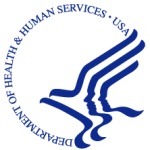- Industry: Government
- Number of terms: 33950
- Number of blossaries: 0
- Company Profile:
United States Department of Health and Human Services, Radiation Emergency Medical Management
A term for diseases in which abnormal cells divide without control and can invade nearby tissues. Malignant cells can also spread to other parts of the body through the blood and lymph systems. There are several main types of malignancy. Carcinoma is a malignancy that begins in the skin or in tissues that line or cover internal organs. Sarcoma is a malignancy that begins in bone, cartilage, fat, muscle, blood vessels, or other connective or supportive tissue. Leukemia is a malignancy that starts in blood-forming tissue such as the bone marrow, and causes large numbers of abnormal blood cells to be produced and enter the blood. Lymphoma and multiple myeloma are malignancies that begin in the cells of the immune system. Central nervous system cancers are malignancies that begin in the tissues of the brain and spinal cord. Also called cancer.
Industry:Health care
A group of diseases in which the bone marrow does not make enough healthy blood cells. Also called preleukemia and smoldering leukemia.
Industry:Health care
A substance used to treat pain or cause sleep. Opiates are made from opium or have opium in them. Opiates bind to opioid receptors in the central nervous system. Examples of opiates are codeine, heroin, and morphine. An opiate is a type of analgesic agent.
Industry:Health care
A measure of how well a patient is able to perform ordinary tasks and carry out daily activities.
Industry:Health care
Any natural or laboratory-made substance that has some or all of the biologic effects of progesterone, a female hormone.
Industry:Health care
Cancer that forms in the tissues of the retina (the light-sensitive layers of nerve tissue at the back of the eye). Retinoblastoma usually occurs in children younger than 5 years. It may be hereditary or nonhereditary (sporadic).
Industry:Health care
An immune cell such as a T or B lymphocyte that responds to a single, specific antigen.
Industry:Health care
A substance used to treat bacterial infections. It belongs to the family of drugs called antibiotics.
Industry:Health care
An enzyme that is made in the kidney and found in the urine. A form of this enzyme is made in the laboratory and used to dissolve blood clots or to prevent them from forming. Also called u-plasminogen activator, uPA, and urokinase-plasminogen activator.
Industry:Health care
A procedure in which the blood supply to the tumor is blocked surgically or mechanically and anticancer drugs are administered directly into the tumor. This permits a higher concentration of drug to be in contact with the tumor for a longer period of time.
Industry:Health care
